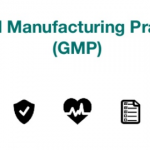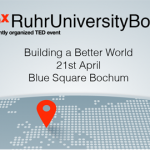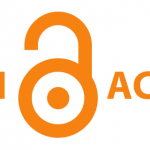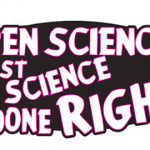Career opportunities after the PhD are plentiful and often hidden in the non-academic job market. In this course, participants will discuss and exchange best practices in compiling a CV or resume that reflect the passion, skills and knowledge collected throughout the academic career and fitted for the desired position.
Additional topics and questions addressed during the course include: What is required for a position in the industry? Have you considered to become an entrepreneur? How can you best prepare for a job interview?
Course content
- Increase your visibility as a scientist: Reputation Building
- Professional networks and how to utilise them – online and offline
- Career alternatives
- Hidden jobs
- Optimising your CV or resume
- Transferable skills for the transition outside academia
- Common questions in a job interview
- Elevator pitch
This course can be aligned to your requirements regarding duration, form and content.
Course duration: 1 or 2 days
Number of participants: 12-25
Course agenda: Available upon request
Contact us
Send us an e-mail or contact us otherwise to inquire this course.
Methodology
A2P courses are geared towards adult learning and use participatory approaches. The trainer encourages participants to add their experience and knowledge to the course content. Topics covered are backed by real examples and relate to the participants’ field of research.
Before the course, participants can submit specific questions and their own presentation examples by email. The course content will be adjusted to the specific needs and requirements of the participants.
Participants are handed out reading material to be discussed during the course as well as a course summary with their achievements.
Links & References
AcademiaNet is a database of profiles of excellent female researchers from all disciplines.
Persson T, (2015), How to work with a scientific recruiter, blogs.nature.com
Persson T, (2016), Moving your career to Stockholm, Sweden, passportcareer.com
Listen to inspiring PhD Career Stories
PhD Career Stories is a podcast about the diversity of career opportunities after the PhD, be it in academia, industry or elsewhere. Stories are narrated by the people themselves.
A2P blog posts on Career Development

Pivot Global Education was commissioned by the Universities South Africa’s Entrepreneurship Development in Higher Education along with the Department of Higher Education and Training (South Africa) to assess and map the development of entrepreneurship throughout the country’s public universities by evaluating structures, supports, delivery and successes in entrepreneurship development. The project's aim was to provide a baseline overview of the status of entrepreneurship development across the government-sponsored higher education landscape ...
Read More

This post was originally published in Swedish at the Vetenskap & Allmänhet website. “VA is an independent Swedish non-profit membership organization that works to promote dialogue and openness between researchers and the public.” This English version was originally published . I harp on about it all the time, so I may as well carry on here too: The research community today is weighed down by a communication culture ...
Read More

For a 2-day course on Good Manufacturing Practice earlier this week, I prepared the following presentation. The lecture started with a recap of Good Scientific Practice, followed by Good Laboratory Practice as prerequisites for reliable and transparent manufacturing in pharmaceutical, medicinal, food and agricultural industries. from
Insights and feedback from the participants ranged from
"Why didn't we have this lecture before ...
Read More

In April this year, the following 10 changemakers gathered at Ruhr University for TEDxRuhrUniversityBochum: (1)
presenting his social enterprise
Saora Insustries, which delivers a solution for sustainable, affordable and environment-friendly drinking water. (2)
Jakob Schoen had a vision of a volunteer maritime salvage back in 2015, when he heard about the many deaths of people trying to cross the Mediterranean Sea and co-founded
Jugend Rettet which owns the boat JUVENTA and has already saved more ...
Read More

This podcast was originally published at
PhD Career Stories.
changed his career path in 2011 after his PhD in Marine Microbiology at the Max Planck Institute for Marine Microbiology in Bremen. In todays “PhD Career Story” he talks about how he became a science communicator and which skills you can use from your PhD if you aim to be self-employed. You can use a lot of your PhD skills, even if ...
Read More

This podcast was originally published at
PhD Career Stories.
"Hello and welcome to today’s podcast on PhD Career Stories. My name is Johanna Havemann and I will tell you a bit about my path up until today. At this very moment, I am in Cape Town, South Africa and will also pass by Nairobi, Kenya next week. Normally, I am based in Berlin, Germany from where I work as a ...
Read More

Our short answer is "YES". Do you need arguments in favor of Open Access (OA) in Research? Here you go: More citations per article OA articles are available free of charge not only to scientists all around the globe, but also to journalists, policy makers, economists and the general public – who pays for large chunk of the conducted research. Alternative metrics (altmetrics) allow especially young scientists to build a reputation by ...
Read More







